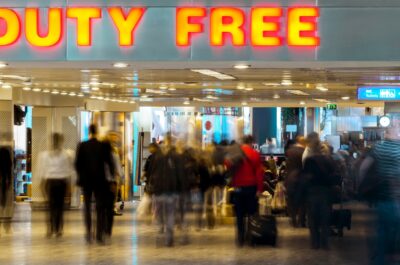More than 25% of travellers say that the Ebola outbreak would make them reconsider their travel plans and only three out of ten think that airport screening will be effective to detect Ebola.
LONDON – Over a quarter of travellers say that the Ebola outbreak would make them reconsider their travel plans according to a ground-breaking new collaborative survey – studying the effects of the Ebola outbreak on travelling behaviour worldwide – produced by renowned travel retail market and consumer research company, m1nd-set, together with TRBusiness magazine.
More than 25% of travellers say that the Ebola outbreak would make them reconsider their travel plans and only three out of ten think that airport screening will be effective to detect Ebola.
The survey, which recruited the opinions of 2,032 international travellers, from m1nd-set’s unique database, reflects a global perspective, including all major regions of the world.
“The data from over 2,000 travellers surveyed has produced some illuminating results,” says Charlotte Turner, TRBusiness Deputy Editor. “These powerful insights can help the aviation, tourism and travel retail industries fully understand the impact of the outbreak, on the mind set of travellers, as well as their behaviour.
“As Nigeria is declared free of Ebola and Governments continue to make controlling the crisis, a top priority, in time these perceptions may change. But as of October this new research has revealed that there is still much to be done to allay travellers’ fears.”
According to survey results, airport screening is expected to have a negative impact on the overall journey of 20% of travellers.
“With around a quarter of travellers claiming that the Ebola outbreak would make them reconsider travel plans in general, the travel retail industry has to expect some significant effect of this crisis on its business,” says Clara Perez, m1nd-set Project Manager of this survey.
The survey concludes that travellers aged 31-45 years old are most likely to reconsider their travel plans – possibly a reflection of the fact that many travellers in this age group have children.
“Moreover, we find that travellers who make purchases in duty free shops on every trip are more likely than the rest to reconsider their travel plans,” adds Perez. “This means the most important travellers for the travel retail industry are the most likely to reconsider their travel plans.”
The survey found that women (28%) are slightly more likely than men (26%) to reconsider their travel plans due to the Ebola outbreak. It also highlighted that younger travellers are much more optimistic about airport screening: 35% of travellers aged 18-30 think it will be effective, compared to only 24% of travellers aged 61-plus. “The younger generation seem to trust modern technology more,” adds Perez.
Business travellers are also more positive than Leisure travellers about airport screening: respectively 31% and 26% of them think it will be effective to detect Ebola.
“Those who buy in duty free shops on every trip are more likely to think that the airport screening will be effective (34%, compared to only 23% of those who buy on every 3rd or 4th trip),” added Perez.
The results paint a potentially more worrisome outlook for tourism in African countries after travellers were asked if they might change their travel plans to areas directly affected by Ebola or the surrounding areas.
Women (78%) were slightly more likely than men (76%) to reconsider their travel plans to affected and surrounding areas due to the Ebola outbreak.
The survey said that older travellers (61+) are the most likely to reconsider their travel plans to affected areas (84% vs 77% overall). Generally speaking, the older that travellers are, the more likely they will be to avoid affected areas.
Leisure travellers (80%) are more likely than Business travellers (75%) to reconsider their travel plans to affected areas.
Infrequent travellers are also the most likely to avoid affected areas (83% vs 77% overall). This relatively inexperienced segment seems to be most afraid of visiting affected areas.
Those who make purchases in duty free shops on every trip are more likely than the rest to reconsider their travel plans to the affected areas (89% vs 77% overall).
Interestingly women are much less likely than men to say that their airport behaviour will be negatively impacted by the airport screening against Ebola: 15% vs 23%.
The data clearly shows that the impact of airport screening, both on the journey overall and the airport behaviour, decreases with age. Twenty-seven percent of travellers aged 18-30 think their journey will be affected, compared to only 13% of travellers aged 61+.
Similarly, 25% of younger travellers think their airport behaviour will be affected, whereas only 12% of older travellers believe this.
Business travellers are more pessimistic than leisure travellers about the impact of the airport screening on their journey overall and their airport behaviour. Frequent travellers are much more likely to think that airport screening will have a negative impact on their airport behaviour.
On the contrary, those who make purchases in duty free shops are the least likely to worry about the effect of airport screening on their airport behaviour.
Photo caption: Washington Dulles International Airport (IAD) – A U.S. Coast Guard Corpsman working with the Office of Field Operations checks the temperature of a traveler who has recently traveled to either Guinea, Sierra Leone, or Liberia. Attribution: US Customs and Border Protection (CBP Photography) Photo: Josh Denmark.
Theodore is the Co-Founder and Managing Editor of TravelDailyNews Media Network; his responsibilities include business development and planning for TravelDailyNews long-term opportunities.






























































































































































































































